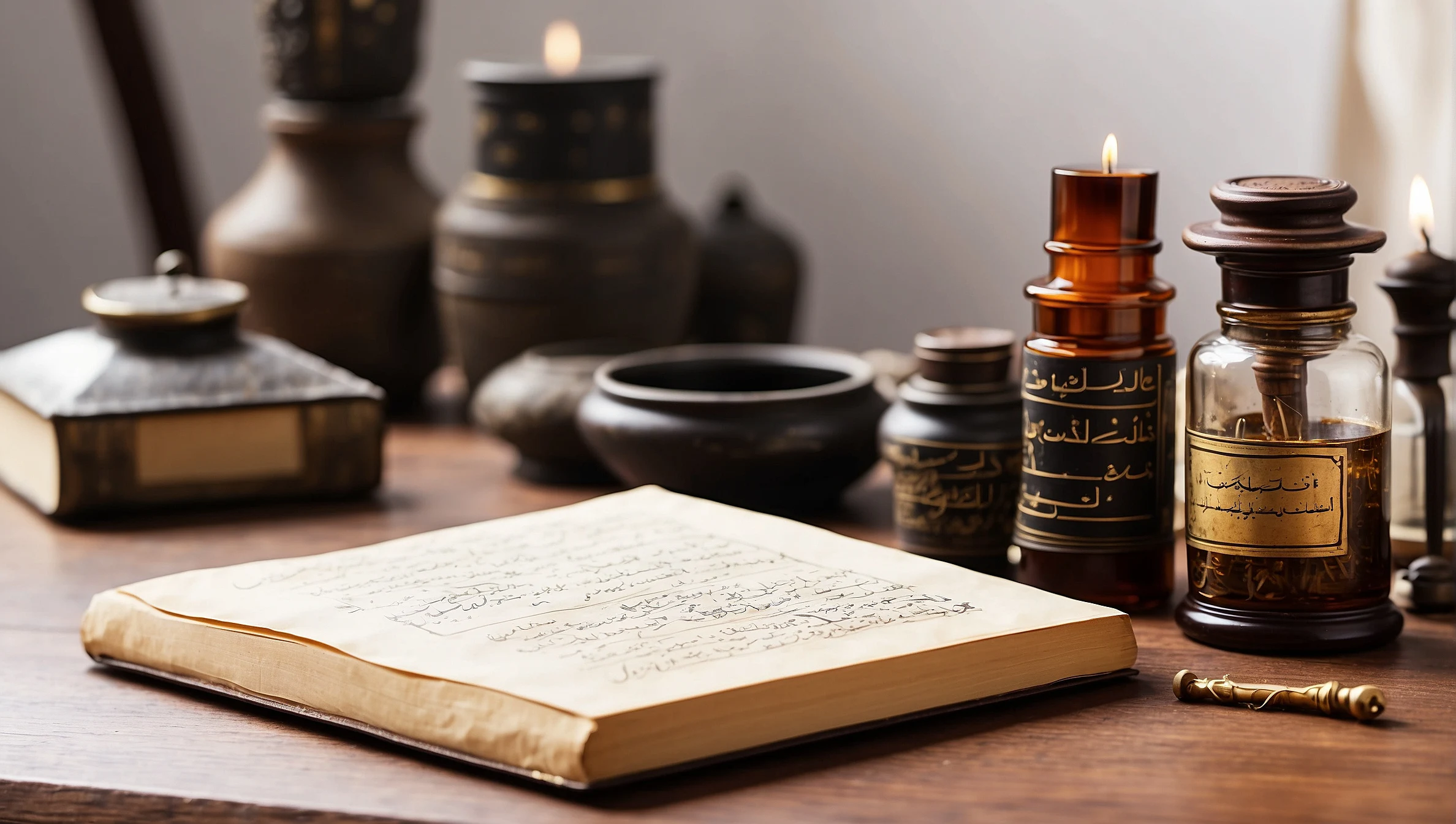A herbalist collects seeds, herbs, and various natural resources to make a traditional recipe that serves as a composite prescription for certain diseases. He also makes women's cosmetics extracted from natural resources.
The profession relies on knowledge of and expertise in herbs and natural resources. It involves collecting herbs and processing them; hence, an herbalist is called
(al-hawwaj),i.e., someone who synthesizes these herbs and blends them together in a way that makes them homogeneous and suitable for a prescription-specific purpose.
Position of the Profession in Madinah:
In the past, herbalists played a role in treating patients, manufacturing medicines, and had much knowledge of natural herbs, both useful and harmful. They were respectable professionals in the society. Their own old market still stands today in Al-Ainiyah St.
Herbalists also attained a prestigious position in Madinah. They were consulted on various diseases. They too diagnosed cases and provided herbal prescriptions. Those herbalists were also consulted about natural cosmetics.
Current Status:
The scope of an herbalist's profession has broadened at present, even though his role does not replace that of a doctor's. Yet, he provides natural alternatives. Herbal stores sell a wide variety of products, including alternative medicine products, cosmetics, spices, natural oils, tea, coffee, natural food flavor mixtures, etc.
Collecting and Training on Products:
Herbalism is still alive in Madinah society and herbal stores are widely spread in the city, as in the old Herbalists Market or in many scattered stores including: Al-Marwani Spices, Muti` Uwaidah Spices, etc.
